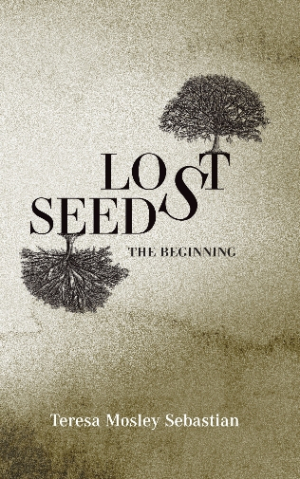
Lost Seeds
The Beginning
Lost Seeds is a piquing novel that addresses various facets of historical racism.
In Teresa Mosley Sebastian’s gripping historical novel Lost Seeds, two brothers choose different paths to move beyond their family’s tragic legacy of racism and enslavement.
Dub and his brother Tim are among the fourteen children born to Tuttle and Betsey. Though slavery has been abolished in the United States for over thirty years, Tuttle still works within a system of plantation “debt servitude.” With little economic or personal freedom, Tuttle’s family continues to use the last name of his employer, Hatch. And Betsey endures Hatch’s frequent rapes and her resulting pregnancies. Though Dub is Tuttle’s child, Tim is Hatch’s half-white son.
Dub and Tim grow up in an environment of frustration, bitterness, and poverty. Tuttle and Betsey turn to alcohol to numb the harsh realities of their lives, while the children are expected to work at an early age and contribute to the family income. Though the family is able to escape the plantation and move to a more urban Southern environment, their liberty comes at a cost when Tuttle is lynched by a group of Hatch’s henchmen.
The contrasts between Dub and Tim are developed with increasing complexity. Dub is seven years older and has a focused and diligent nature. He and his Creole wife, Mae, share an endearing partnership, but their high aspirations for themselves and their children sometimes alienate them from other members of their community. Labeled an “Uncle Tom” and physically attacked by his Black and white coworkers, Dub refuses to be daunted by any resistance he encounters. Adaptable yet tenacious, he strives to “design” his own destiny.
Tim’s skin tone is lighter than Dub’s; he can even pass as white, or at least as someone of Mediterranean heritage. More emotional and expressive than his brother, Tim is also more impatient with the restrictions placed upon Black Americans. Still, though Tim is sometimes drawn into aspects of white society, he is never fully accepted. He struggles to comprehend his ambiguous racial identity and, like his parents, becomes prone to angry outbursts and alcoholism.
Dub and Tim’s mother, Betsey, is a compelling, damaged heroine. Forced into sexual servitude for years, she struggles to support her family following her husband’s murder. Betsey can be caring and maternal, but she also goes on drinking binges and beats her sons for any transgressions. She rages about having sacrificed her body and at times mocks Dub’s and Tim’s dreams for a better future.
The book’s rich, detailed backdrop reaches from the Civil War to the 1920s. Tim’s emotional anguish sometimes slows the novel’s assured pace, but his elation at being mistaken for a white man while riding on a train is conveyed with poignant near-transcendence. “I’m not invisible!” Tim marvels to himself when he is treated with surprising cordiality and respect.
The engrossing first book of a series, Lost Seeds addresses various facets of historical racism and piques keen interest in the saga’s continuation.
Reviewed by
Meg Nola
Disclosure: This article is not an endorsement, but a review. The publisher of this book provided free copies of the book and paid a small fee to have their book reviewed by a professional reviewer. Foreword Reviews and Clarion Reviews make no guarantee that the publisher will receive a positive review. Foreword Magazine, Inc. is disclosing this in accordance with the Federal Trade Commission’s 16 CFR, Part 255.
